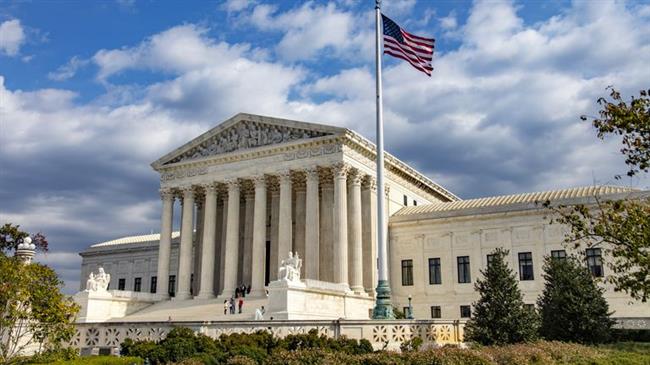A US court’s ruling to seize Iranian assets worth about $1.7 billion outside the United States has been thrown out for now.

The US Court of Appeals for the Second Circuit had ruled that the families of US troops killed in 1983 bombing of the US Marine Corp barracks in Lebanon get access to Iranian funds in Luxembourg.
But the US Supreme Court on Monday rejected the ruling and sent the case back to the lower court so that it could issue a new decision based on a law signed by President Donald Trump which allows families to access Iranian assets.
In 2016, the US Supreme Court allowed the families to claim compensation from Iran’s assets, but the Central Bank of Iran contented that the funds were held in Luxembourg and thus could not be seized.
Last March, a Luxembourg court refused to reinforce a US ruling that would have helped families of victims of the Sept. 11, 2001 attacks claim Iranian assets held by a clearing house in the tiny European country.
The court ruled that there were no grounds in international law to uphold in Luxembourg a 2012 US court decision to strip Iran of sovereign immunity.
The Iranian president’s deputy for legal affairs Laya Joneidi said at the time the lawyers won the case by arguing that Sept. 11 attacks were not related to Iran.
A New York court had accused Iran of providing material support and resources to Al-Qaeda which is a sworn enemy of the Iranians and awarded the plaintiffs damages of over $7 billion.
The Luxembourg court has said the plaintiffs could not continue their legal case to seize Iranian assets in the country.
Iran’s assets held in foreign banks have been subject to a witch hunt by the Americans who have used Washington’s animosity toward the Islamic Republic to easily win lawsuits against the country in US courts.
Some plaintiffs even tried once to seize priceless Persian artifacts held at a Chicago museum to satisfy a court judgment against Iran but their bid was blocked on appeal by the Iranian government and University of Chicago.
Iran has denounced US seizures of its frozen assets in the United States as highway robbery and hauled the United States before the International Court of Justice (ICJ) at The Hague.
Last February, the ICJ ruled that Iran could proceed with a legal action to recover billions of dollars in frozen assets that the United States said must be paid to purported American survivors and relatives of victims of attacks blamed on the Islamic Republic.
LINK: https://www.ansarpress.com/english/12749
TAGS:






























 online news tv
online news tv




